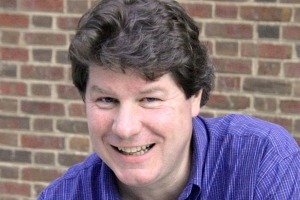
My subject is astronomy – a subject I’ve loved since I was ten years old, when my father would tell me of strange new discoveries: powerful quasars, spinning pulsars, the faint glow from the big bang. Decades later, and a career that has allowed me to learn about all these things, my sense of wonder is no less intense. What has changed for me, and perhaps for the entire field of astronomy, is the recognition of a single, integrated, and fabulously rich story that links all these realms into an overarching history of our universe, from the big bang to the formation of planets, including ones suitable for life.
Perhaps a fundamental goal of the University is to help students explore their place within ever larger and interconnected contexts – cultural, historical, environmental, religious, to name a few. My own goal, especially in entry-level classes, is for students to leave my class with a sense of their cosmic context. Of course, I want them to gain an intellectual understanding. But what I’m really aiming for is an emotional awakening – a feeling of awe at nature and a deep sense of their own cosmic ancestry and citizenship. My allies in this are simple: metaphors that turn the alien into the familiar; frequent links that build the bigger picture; an honest reflection of my own emotional reactions; and an opportunity for students to articulate their own sense of place.
The engagement courses, with their more open format, have challenged me to find a fresh path into the subject that provides two rather distinct experiences for students – one is an intuitive understanding of the richness of the cosmic narrative itself, and the other is an appreciation of how science actually constructs that narrative.

